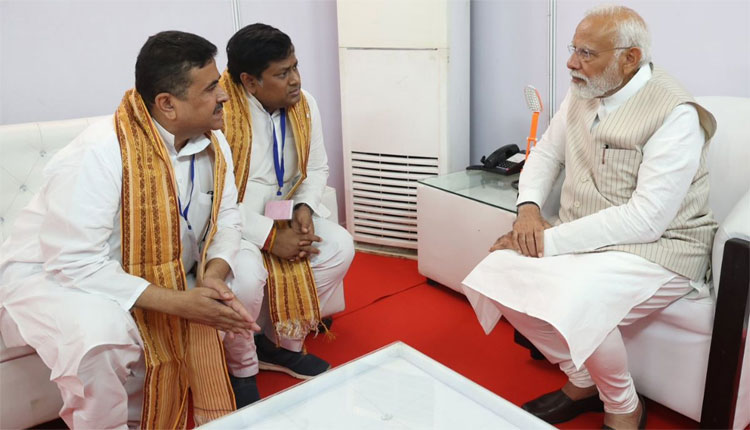New Delhi: A fresh controversy has emerged in Indian politics as Bharatiya Janata Party (BJP) leaders have made provocative demands concerning the administrative reorganization of parts of West Bengal and Jharkhand. The demand, led by Nishikant Dubey, BJP MP from Godda in Jharkhand, seeks the formation of a new union territory by merging two districts of West Bengal with parts of Jharkhand. This comes shortly after West Bengal BJP president and Union Minister of State Sukanta Majumdar’s call for including North Bengal in the North Eastern states.
In a statement made in the Lok Sabha, Dubey argued that Hindu villages are rapidly depopulating in the proposed regions due to increasing Muslim populations, citing concerns about illegal immigration and settlement from Bangladesh. He stated, “If my statement is wrong, then I am ready to resign.” Dubey called on the central government to intervene, proposing the implementation of the Law Commission’s 2010 report, which suggests permissions for religious conversion and marriage should be mandatory.
Dubey claimed that the Jharkhand High Court, in a recent ruling, highlighted the growing Muslim population and urged the state government to take action. He further alleged that the Jharkhand Police are ineffective in addressing the situation, accusing Bangladeshi infiltrators of marrying tribal women and influencing local demographics.
According to Dubey, the tribal population in the Santhal Pargana region of Jharkhand has significantly decreased from 36% in 2000 to 26% today. He raised concerns over the alleged demographic changes, suggesting that the Muslim population in several assembly constituencies has increased by over 110%.
Dubey’s remarks have sparked a significant political debate, with many criticizing the BJP for stoking communal tensions. The demand for a new union territory, encompassing regions like Kishanganj, Araria, Katihar, Malda, Murshidabad, and both Santhal Parganas, is seen as a politically sensitive issue that could have far-reaching implications.
The ruling Jharkhand Mukti Morcha (JMM) and Congress coalition government has been accused by Dubey of inaction in controlling illegal immigration. He alleged that this inaction is exacerbating the problem, leading to demographic shifts that could affect the socio-political landscape of the region.
This issue is likely to dominate political discourse in the coming days as leaders from various parties respond to the provocative statements and the potential implications for national and regional politics. The BJP’s stance on these issues could significantly impact its relations with regional parties and its broader electoral strategies in West Bengal and Jharkhand.



Comments are closed.